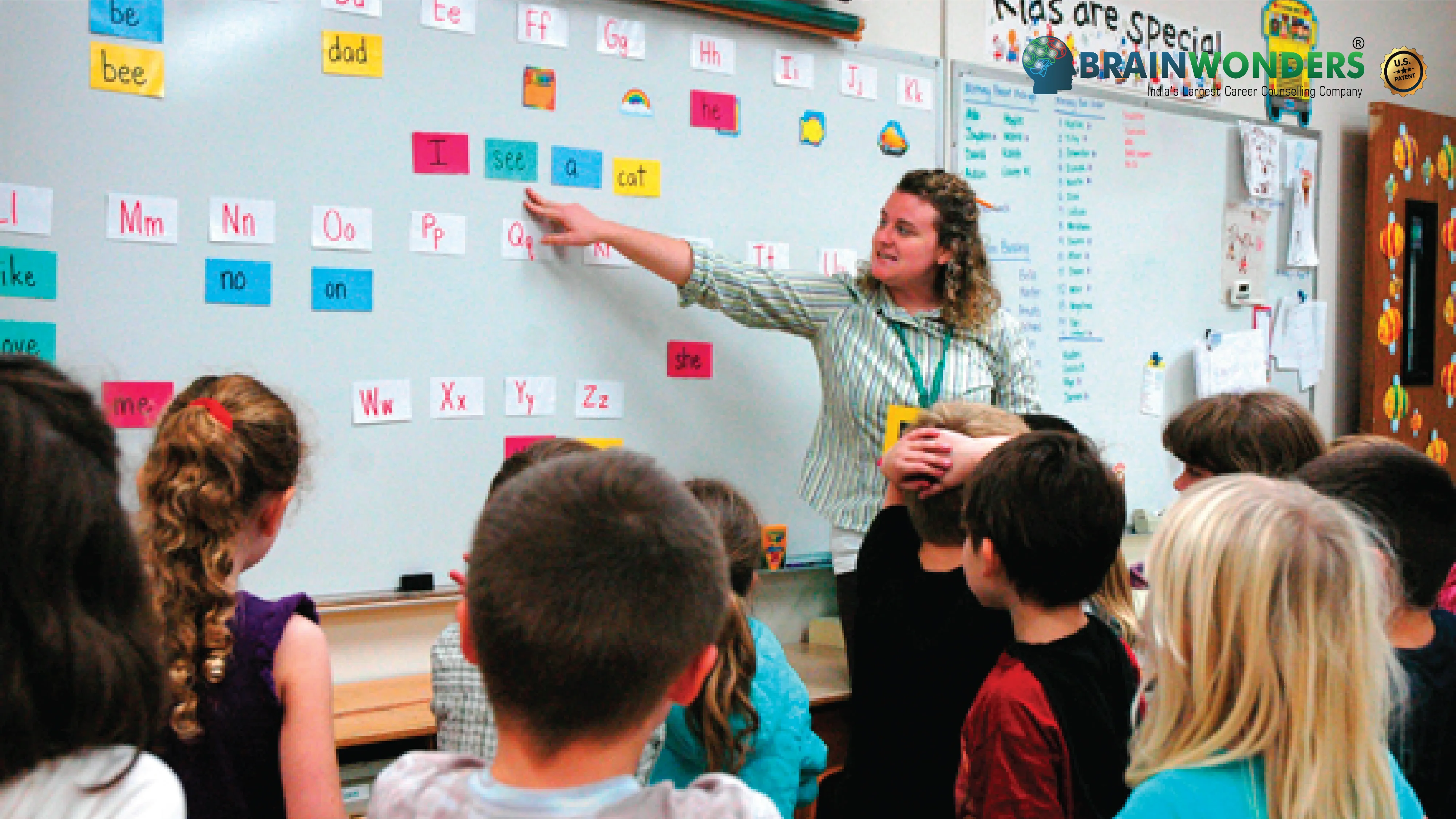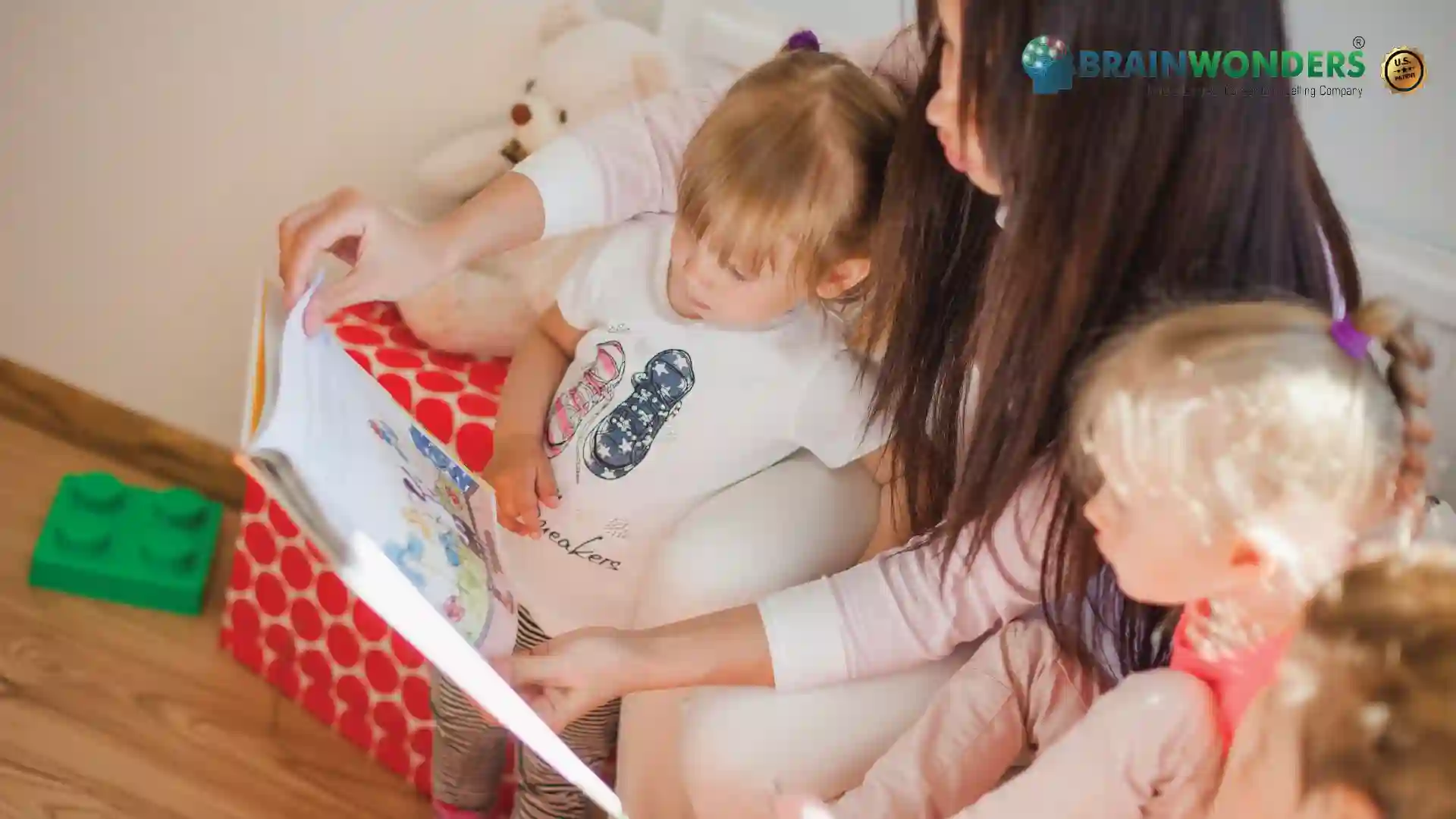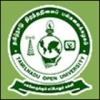Diploma in Early Childhood Education - Course, Fees, Eligibility, Top Colleges, Top Careers
Course Description
Diploma in Early Childhood Education course helps students in building up their attitude, knowledge, and skills necessary for working with little youngsters. Diploma in Early Childhood Education course likewise empowers them to oversee and arrange childcare focuses like pre-schools, kindergartens, crèches, nursery schools, and day-care focuses.
Diploma in Early Childhood Education: An Overview
The Diploma in Early Childhood Education equips individuals with the knowledge, skills, and techniques needed to nurture and support the development of young children below the age of six. This course is designed for teachers and those aspiring to build careers in pre-schools, pre-primary schools, nursery schools, anganwadis, or childhood care centers.
Through this program, candidates gain a comprehensive understanding of the development, needs, and rights of young children from birth to six years old. They learn about common childhood illnesses, how to care for sick children, and preventive measures to ensure their well-being. Moreover, the course covers essential knowledge on caring for children with special needs.
Besides, the Diploma in Early Childhood Education emphasizes equipping candidates with the ability to offer guidance and consultation to parents. This support extends to addressing child health and nutrition concerns, providing early stimulation, and implementing preventive measures.
In summary, this diploma program prepares individuals to provide young children with the best care and education, creating a solid foundation for their future growth and development.
Diploma in Early Childhood Education: Advantages of the Course
The awareness and significance of early childhood education (for children aged six and below) have grown significantly in recent years. As a result, there is a high demand for skilled educators who possess knowledge and expertise in childhood education techniques.
The Diploma in Early Childhood Education course offers a strong foundation in childhood education, covering essential topics such as child development and psychology, child nutrition, life coping skills, pedagogy and planning, and the organization of preschools and daycare centers.
By undertaking the Early Childhood Education Diploma course, candidates become well-prepared to work in diverse fields within elementary education. They can find employment opportunities in government and private sectors or even venture into entrepreneurship by establishing their daycare facilities.
Furthermore, this diploma serves as a stepping stone for candidates interested in pursuing higher studies in the education field. They can become specialized teachers and develop innovative curricula for childhood education.
Top employment profiles in this field include Primary School Teacher, Day Care Coordinator, and Preschool Center Head/Director.
Regarding remuneration, graduates with a Diploma in Early Childhood Education can expect an average starting salary ranging from INR 3,00,000 to INR 5,00,000.
Diploma in Early Childhood Education: Admission Process
To secure admission to the Diploma in Early Childhood Education program, candidates must undergo the selection process determined by the college or university they wish to join. The admission process is primarily merit or entrance-based, wherein colleges evaluate applicants' overall performance, including entrance exam scores, interviews, and 10+2 marks.
To apply for colleges offering merit-based admission, students should follow these steps:
- Check Requirements: Visit the college's admission department office or official website to understand the requirements.
- Fill and Submit Forms: Complete and submit the admission forms per the prescribed format and dimensions provided by the college or university.
- Form Processing: The respective college or university's admission department will process the received forms.
- Interview and Group Discussion: Selected candidates may be invited for personal interviews and group discussion rounds to assess their suitability for the program.
- Admission Offer: Based on the overall performance in entrance exams, personal interviews, and group discussions, colleges extend admission offers to the selected candidates.
Typical day at work
Frequently Asked Questions
1. What is the scope for a diploma in early childhood education?
Answer: The scope for a diploma in early childhood education is promising and diverse. Graduates with this diploma can explore career opportunities in education, particularly in preschools, nurseries, kindergartens, and early childhood care centres. They can work as preschool teachers, nursery teachers, kindergarten teachers, early childhood educators, childcare coordinators, and playgroup coordinators. Additionally, there is a growing demand for trained professionals who can cater to the developmental needs of young children, making this diploma a valuable qualification in early childhood education.
2. What is the qualification for a teacher in early childhood education?
Answer: To become a teacher in early childhood education, the minimum qualification required is a diploma or degree in early childhood education. Many institutions and employers prefer candidates with a Diploma or Bachelor's degree in Early Childhood Education or a related field. Additionally, a successful early childhood educator must have a passion for working with young children, strong communication skills, and a nurturing and patient demeanour.
3. What is the course of early childhood education?
Answer: Early childhood education typically covers a range of subjects to equip students with the necessary knowledge and skills to work effectively with young children. Some common topics covered in the course may include child development and psychology, curriculum planning and design, classroom management, health, safety, nutrition, family and community engagement, special needs education, and practical experience through internships or practicums. The course duration can vary, but diploma programs generally last one year, while degree programs may take two to four years to complete.
4. What is the salary of a diploma holder in early childhood care and education in India?
Answer: The salary of a diploma holder in early childhood care and education in India can vary depending on location, experience, and the employing organization. Early childhood educators with a diploma can earn an annual salary ranging from approximately 2,00,000 to 3,50,000 Indian Rupees. However, salaries may differ from region to region, and experienced professionals or those working in prestigious institutions may command higher pay.
5. How can I become an early childhood educator in India?
Answer: To become an early childhood educator in India, you can follow these general steps:
- a. Education: Obtain a diploma or a degree in early childhood education or a related field from a recognized educational institution. Look for courses that cover relevant topics in child development, curriculum planning, and classroom management.
- b. Practical Experience: Gain practical experience by participating in internships or practicums at preschools, kindergartens, or other early childhood care settings. This hands-on experience is crucial for understanding the practical aspects of working with young children.
- c. Professional Development: Consider enrolling in workshops, seminars, or continuing education programs to stay updated with the latest trends and best practices in early childhood education.
- d. Certification: While only sometimes mandatory, obtaining certification from reputable organizations or early childhood education associations can enhance your credibility and job prospects.
- e. Job Search: Find job opportunities in preschools, early learning centres, and educational institutions. Tailor your resume and cover letter to highlight your qualifications and passion for working with young children.
- f. Interview and Networking: Prepare for interviews and showcase your enthusiasm, expertise, and willingness to contribute positively to the development of young learners. Network with other professionals in the field to explore more opportunities.
Eligibilty
To be eligible for a Diploma in an Early Childhood Education program, candidates must fulfil certain criteria set by the college or university offering the course. The general eligibility requirements are as follows:
- Educational Qualification: Candidates should have completed their 10+2 education (or equivalent) from a recognized educational board.
- Minimum Percentage: Some institutes may specify a minimum percentage requirement in the 10+2 exams for eligibility, which can vary from one institution to another.
- Age Limit: The college or university may set a minimum and maximum age limit for admission to the program.
Diploma in Early Childhood Education: Syllabus
Course Outline The Diploma in Early Childhood Education program encompasses a well-rounded curriculum combining engaging classroom lectures and hands-on practical sessions. Students actively participate in projects, classroom activities, and community training programs during the valuable component, enriching their learning experience. The comprehensive course syllabus spans two semesters, allowing students to delve deep into various aspects of early childhood education throughout one year.
| Semester 1 | Semester 2 |
|---|---|
| Introduction to Child Care and Development | Nutrition and Health Care During Infancy and Early Childhood |
| The Child: Development in the First Twelve Months | Nutrition Related Disorders in Early Childhood |
| The Child: Development During Toddlerhood (13-36 months) | Common Childhood Illnesses, Their Prevention & Management-l |
| The Child: Development During Preschool Years (3-6 years) | Common Childhood Illnesses, Their Prevention & Management-2 |
| Play Activities for Preschoolers-l | Services for Children |
| Play Activities for Preschoolers-2 | Children with Special Needs-l |
| Organizing a Child Care Centre | Children with Special Needs-II |
| Introduction to Nutrition and Health | Communicating with Parents and the Community |
| Basic Concepts in Nutrition | Managing Children’s Programmes: Some Perspectives |
| Nutrition and Health Care During Pregnancy and Lactation | Project Work |
Diploma in Early Childhood Education: Job Prospects
| Job Title | Job Description | Average Salary (in Rupees) |
|---|---|---|
| Preschool Teacher | Facilitate early learning and development in preschools | 2,50,000 - 3,50,000 |
| Nursery Teacher | Teach and care for young children in nursery settings | 2,00,000 - 3,00,000 |
| Kindergarten Teacher | Educate and nurture children in kindergarten settings | 2,50,000 - 3,50,000 |
| Early Childhood Educator | Plan and implement developmentally appropriate curriculum | 2,50,000 - 3,50,000 |
| Childcare Coordinator | Oversee childcare facilities and staff | 3,00,000 - 4,00,000 |
| Playgroup Coordinator | Organize and manage playgroup activities | 2,50,000 - 3,50,000 |
| Parent Educator | Provide guidance and support to parents | 2,00,000 - 3,00,000 |
| Early Intervention Specialist | Work with children with special needs | 3,50,000 - 4,50,000 |
| Child Development Consultant | Offer expertise in child development and education | 3,50,000 - 4,50,000 |
| Child Life Specialist | Assist children and families in healthcare settings | 3,00,000 - 4,00,000 |
Colleges




